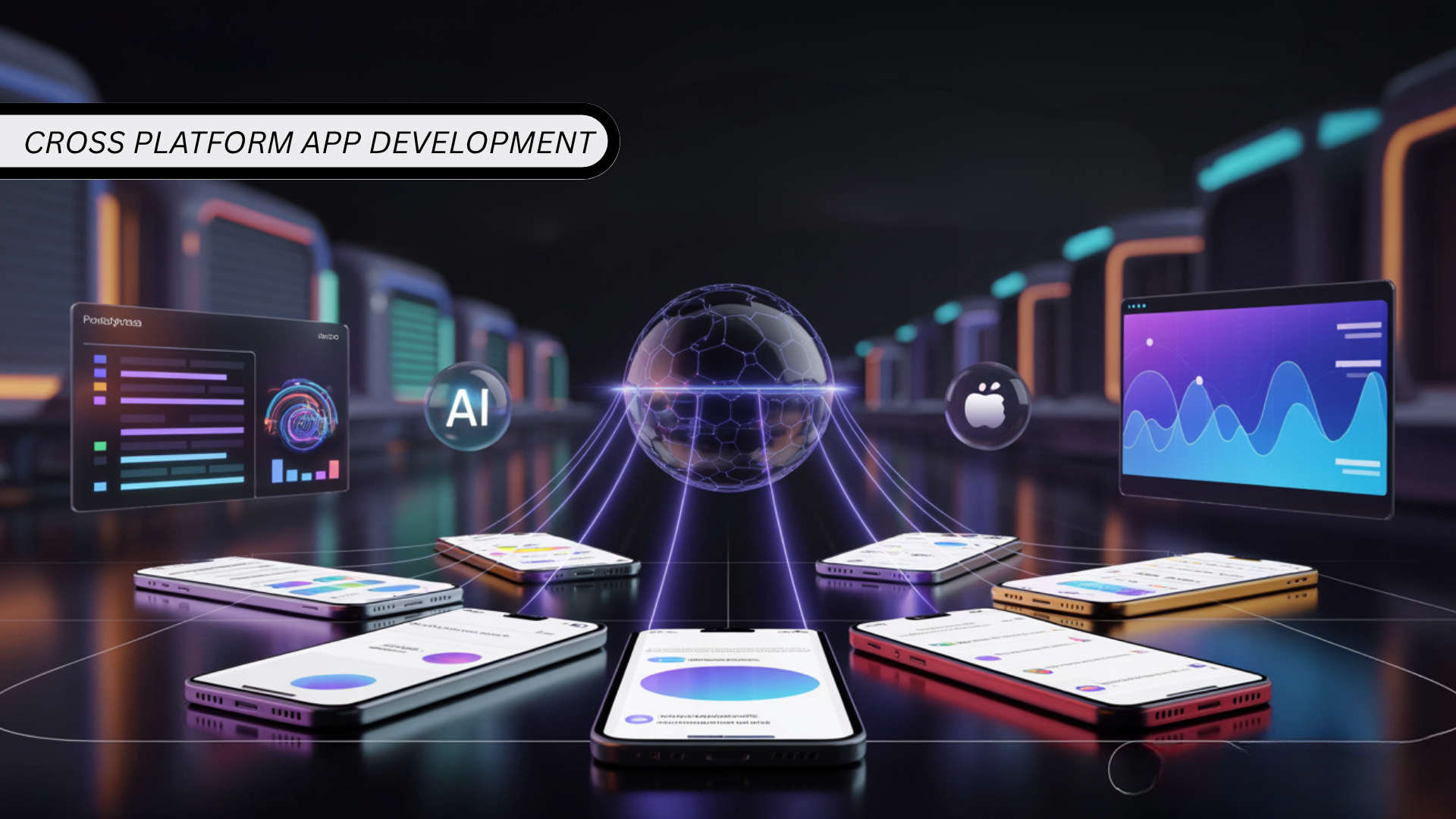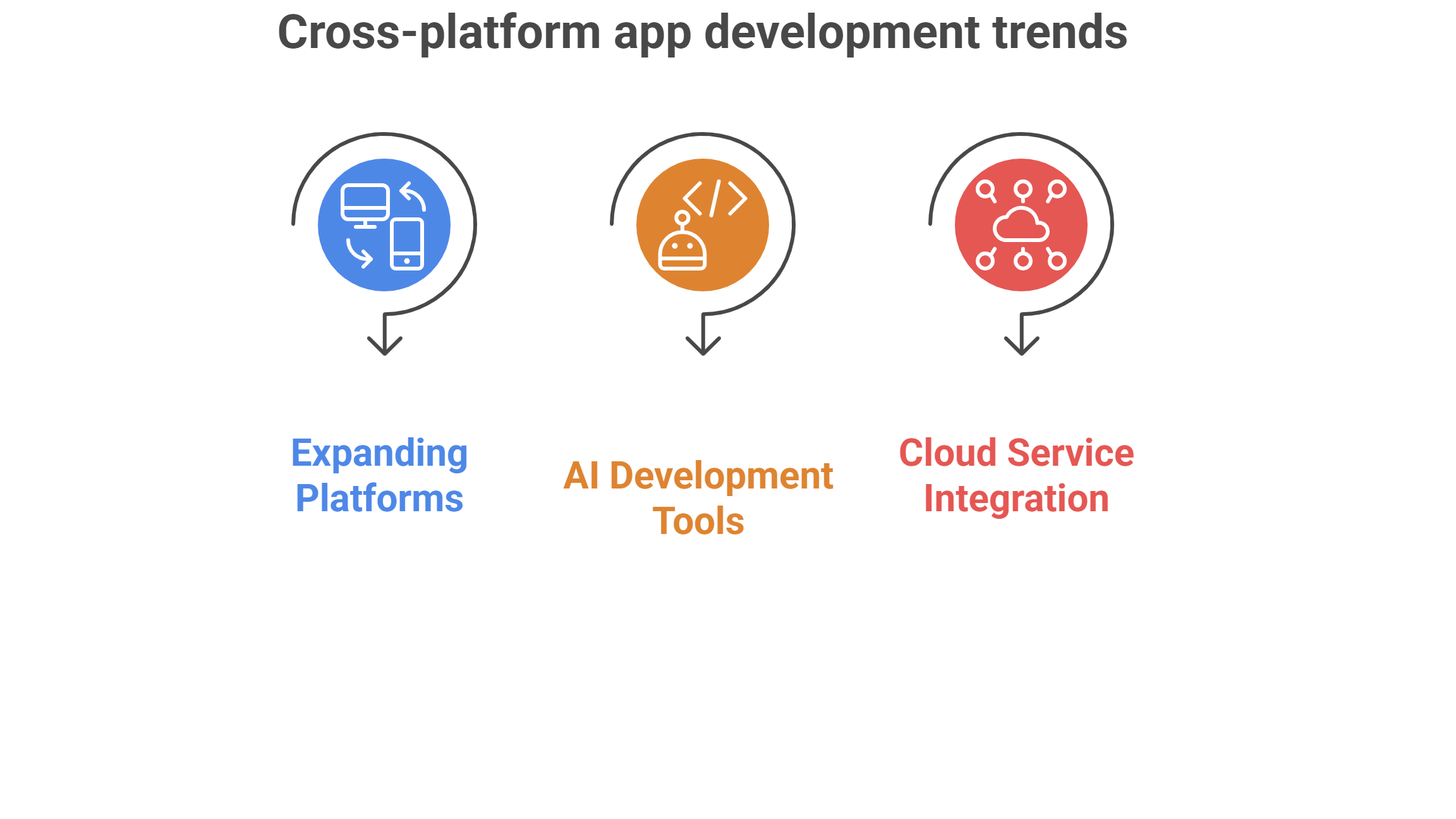
In 2025, delivering seamless, high-performance experiences across every device is no longer just an option—it’s a necessity. More businesses than ever are turning to cross platform app development service solutions to connect with users on Android, iOS, web, and desktop—all from a single codebase. As competition continues to intensify, choosing the right approach is crucial for saving time, reducing costs, and staying ahead of industry trends.
Why Choose a Cross Platform App Development Service in 2025?
Delivering an outstanding digital experience across devices is no longer optional—it’s essential. By choosing a cross platform app development service, you gain the power to reach users on Android, iOS, web, and even desktop from a single codebase. This approach increases efficiency, consistency, and helps businesses maximize their impact without doubling engineering costs.
Moreover, as technology evolves, customers expect smoother, more seamless connections with their favorite brands. Consequently, businesses now need solutions that quickly adapt to market needs, minimize costs, and maintain quality. For those reasons, a cross platform app development service has become the industry’s top choice.
Unified Codebase: Simplicity Meets Scalability
Using a cross platform app development service means you write code once and deploy everywhere. As a result, companies:
- Drastically reduce their development and maintenance workload,
- Launch updates much faster,
- And ensure their user experience remains consistent on all platforms.
For example, when a retail company recently adopted this approach, they cut their launch timeline in half and realized higher customer satisfaction rates almost immediately.
Lower Costs and Faster Delivery
Another significant benefit of a cross platform app development service is in cost savings. You avoid building and maintaining separate apps, which translates into a leaner budget and less complexity for your team. In addition, faster deployment lets you capture audience attention more quickly and outpace competitors.
Broad Talent Pool and Community Support
In 2025, many professionals specialize in cross platform technologies. Thanks to this, it’s easier than ever to build teams with the expertise you need, resulting in even smoother development cycles.
What Is the Best Cross Platform Language for Mobile App Development in 2025?
Identifying the best technology for your app development is a critical first step. Ultimately, your choice will affect app performance, scalability, and your ability to innovate over time. Below are today’s leading frameworks and languages that power top-performing mobile apps.
Flutter (Dart Language)
Flutter, an open-source toolkit supported by Google, is commanding the market.
Key strengths of Flutter:
- Blazing-fast performance (almost native-level speed)
- Hot reload for rapid testing
- An extensive library of beautifully rendered widgets
Additionally, Flutter supports deployment not only to mobile, but also to web and desktop. As a result, many innovative brands and startups choose Flutter to future-proof .
Considerations:
App file sizes may be larger, and specialized hardware integrations can require native code.
React Native (JavaScript/TypeScript)
React Native, driven by Meta (Facebook), offers another popular choice for cross platform app development service needs.
What sets React Native apart?
- Enormous global community and resources
- Huge ecosystem of third-party libraries
- Shared codebase between web (React) and mobile
Teams with existing web expertise often choose React Native because the transition feels natural. For this reason, React Native continues to power high-traffic apps for enterprises and agile startups alike.
Drawback:
Performance may lag behind Flutter for graphics-intensive use cases.
.NET MAUI (C#)
The .NET MAUI platform takes cross platform app development even further by allowing applications to run on Android, iOS, Windows, and macOS.
Why consider .NET MAUI?
- Ideal for businesses invested in Microsoft technology
- Shared libraries and business logic for mobile and desktop
- High-level security and integration with tools like Azure
Because it unifies enterprise projects on one codebase, companies save not only time but also IT resources long term.
Kotlin Multiplatform Mobile (KMM)
Kotlin Multiplatform Mobile (KMM) is gaining ground in the cross platform development world.
Here’s why teams like KMM:
- Share core business logic between Android and iOS
- Maintain platform-specific user interfaces
This approach keeps custom UI design flexibility while reducing duplicative work for business logic. Businesses with strong Android backgrounds find KMM a very appealing option for their cross platform app development .
Latest Trends
The landscape in 2025 is more dynamic than ever, so it’s essential to monitor new trends if you want your cross platform app development service to stay ahead.

Beyond Mobile—Expanding to Desktop and Web
Today’s frameworks are no longer limited to phones. Solutions like Flutter and .NET MAUI provide avenues for your app to run on tablets, desktops, foldable screens, and even web browsers. Therefore, businesses can target even broader audiences without duplicating effort.
AI-Driven Development Tools
Artificial intelligence is making its mark in app development. Developers now leverage AI-powered code suggestions, automated testing suites, and smart debugging assistants. Thus, productivity leaps and error rates plunge.
Integrated Cloud Services
It is easier than ever to add robust cloud features (real-time databases, authentication, advanced analytics) to your app development . Whether you use Google Firebase, Microsoft Azure, or AWS, integrations are simpler and more secure.
Case Study: Real-Life Results
A mid-sized e-learning company was struggling to maintain two separate mobile teams—one for iOS, one for Android. After migrating to a cross platform app development service using Flutter, their development costs fell by 45%, and feature updates became synchronized. In addition, app ratings improved as users enjoyed a consistent and reliable experience across devices.
Team morale improved too, as developers worked together more closely and onboarding new talent became smoother. Investors and customers alike noticed the increased pace of innovation, proving that the right cross platform app development service can completely transform a business.
Conclusion: The Future of App Creation
As the digital world accelerates, the importance of delivering seamless, reliable, and consistent user experiences cannot be overstated. Investing in a cross platform app development service allows your business to meet users where they are and future-proofs your digital products for growth.
With leading languages and frameworks like Flutter, React Native, .NET MAUI, and KMM, your path toward delivering top-quality apps on every platform has never been more accessible. Stay updated on trends, leverage the latest in cloud and AI tooling, and always prioritize excellent structure and keyphrase use.
If you’re ready to build the next generation of apps and maximize your business potential in 2025 and beyond, start with a robust, modern cross platform app development service.
Frequently Asked Questions
What is a cross platform app development service?
A cross platform app development service is a solution that allows you to build one codebase for apps running on Android, iOS, and sometimes web or desktop. Essentially, your business can serve every user without duplicating work.
What is the best cross platform language for mobile app development in 2025?
Flutter (with Dart) and React Native (with JavaScript) continue to lead. .NET MAUI (with C#) and Kotlin Multiplatform Mobile (with Kotlin) are also excellent, especially for enterprise environments or teams with corresponding expertise.
Does cross platform development impact performance?
Not anymore. Modern frameworks like Flutter and React Native produce apps that are nearly as fast and smooth as natively developed apps. Only the most graphics-intensive apps will sometimes require additional native optimization.
Can large enterprises trust cross platform app development services?
Absolutely. Leading banks, retailers, and healthcare organizations are adopting cross platform solutions to simplify maintenance, speed up innovations, and save millions in long-term development costs.
How do I choose the best framework ?
Start with your team’s existing skills, your performance and design requirements, and which platforms you want to reach (mobile only, or also web/desktop). Balance community support, available plugins, and integration possibilities.

